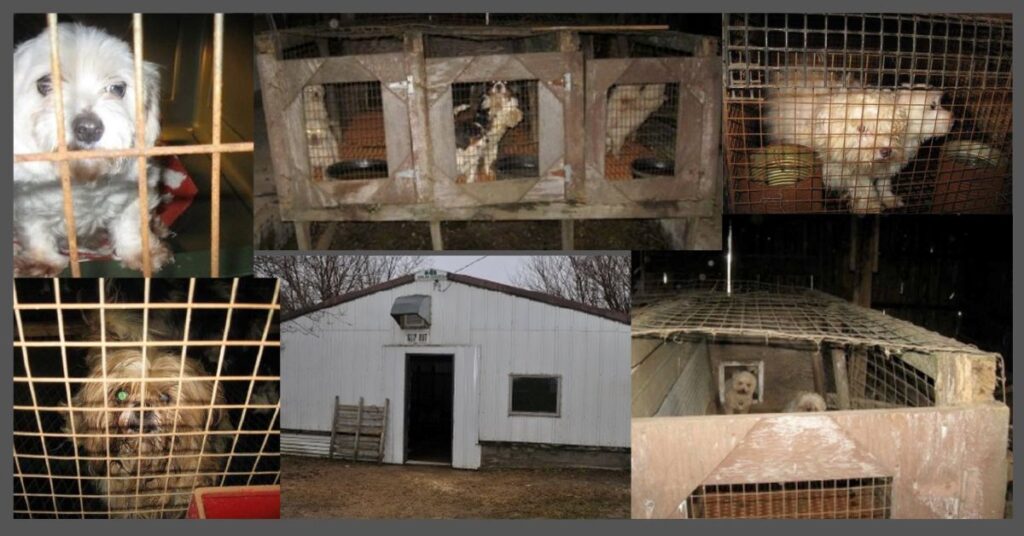In the world of dog breeding, the USDA (United States Department of Agriculture) is supposed to play a crucial role in inspecting and licensing commercial dog breeders to ensure the welfare of animals. However, the Animal Welfare Act allows USDA dog breeders to keep dogs and puppies in dark barns, yes, it is perfectly legal. It may be shocking to some but this has been going on for years and years. Shedding light on the conditions the dogs endure and the need for greater scrutiny in USDA kennels is important. The dogs deserve better.
The Dark Barns:
Imagine a scenario where inspectors need to use flash photography to capture images of dogs in USDA-licensed breeding kennels. This is not a dystopian fiction but a harsh reality. In many instances, these breeders legally keep their dogs in, hot in the summer, cold in the winter, dark barns. The lack of visibility raises concerns about inhumane conditions in which these dogs are forced to live and breed.
No Electricity Due to Religious Beliefs:
Adding another layer to this distressing situation some breeders don’t have electricity in their barns, due to religious beliefs. This lack of basic amenities raises questions about the suitability of these facilities for housing dogs and puppies. It prompts us to ask whether religious practices should be allowed to compromise the welfare of living beings.

The Puppy Mill Deception:
One common misconception is that all USDA-commercially licensed breeders are reputable and operate ethically. However, the sad truth in commercially breeding dogs is that legality does not equate to humane practices. Commercially licensed breeders are known to operate as puppy mills, putting profit above the well-being of their dogs. This is a harsh reality that prospective pet owners need to understand.
Seeing is Believing:
The key message here is that online appearances can be deceiving. Just because a breeder is licensed and seemingly meets legal standards doesn’t guarantee that they are not running a puppy mill. The responsibility lies with the buyers to go beyond websites and photos and witness the conditions in which the breeding dogs live, in person. Seeing the mother dog, assessing her mental and physical well-being, and seeing the kennel conditions are crucial steps in ensuring that one is not inadvertently supporting puppy mill cruelty.
Dogs being legally kept in dark barns by USDA-licensed breeders is a call to action. It highlights the importance of vigilant scrutiny and urges potential puppy buyers to be discerning in their choices. Let’s strive for a world where every dog breeding facility prioritizes the welfare of animals over profit, and where darkness gives way to transparency and compassion. Speak up for the USDA dogs. Learn about about current laws and legislations.








